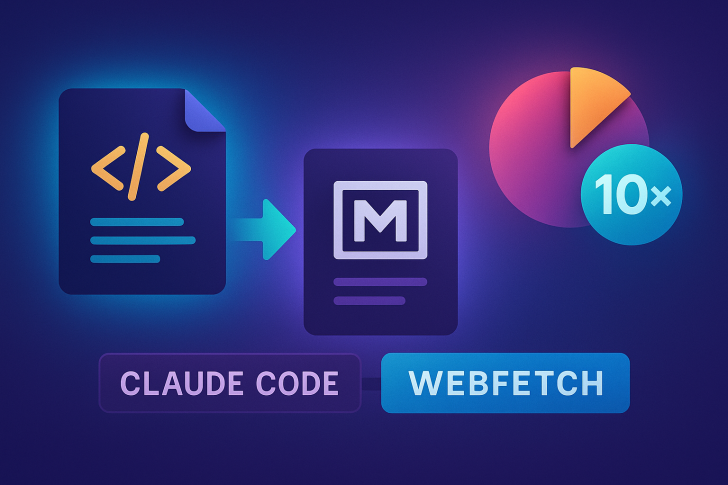⬤ The next version of Claude Code will enhance its WebFetch tool by automatically adding the header Accept: "text/markdown, *" to documentation requests. This simple change lets docs platforms serve Markdown directly instead of full HTML pages, making content retrieval way more efficient. It's a lightweight approach that significantly reduces token usage while keeping the same information quality.
⬤ Bun's documentation system was quick to adopt this change. Now when Claude Code fetches Bun's docs, it receives Markdown instead of HTML by default—slashing token usage by roughly 10×. The difference is striking: HTML responses are bloated with styling and formatting noise, while Markdown responses deliver clean, text-first content that's perfect for Claude's processing needs.
⬤ This isn't just a formatting preference—it's a fundamental improvement in how AI tools interact with technical documentation. Markdown cuts through the clutter, speeds up parsing, and drastically lowers token costs. For engineers using LLM-assisted programming daily, this means more predictable context windows and richer analysis without burning through tokens on unnecessary HTML markup.
⬤ This update shows how small technical improvements can have outsized practical impact. With Bun leading the way and token usage dropping by an order of magnitude, Claude Code now runs significantly leaner. As more documentation platforms adopt Markdown-first responses, developers can expect faster, cheaper, and smoother AI-assisted workflows.
 Peter Smith
Peter Smith

 Peter Smith
Peter Smith


